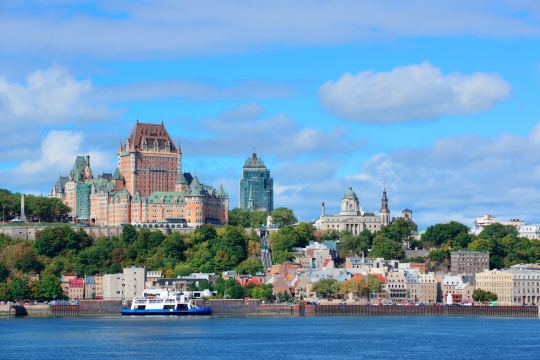The Canadian province of Quebec is an interesting option for would-be expats who are looking for someplace outside of their home country to settle. Quebec is experiencing a labour shortage that has led it to becoming more welcoming of migrants, while its long and complicated history has resulted in beautiful architecture, delicious food and a distinctive accent that only grows more charming with time. As a majority Francophone region within a largely English-speaking country, Quebec is a great destination both for French language learners and for Francophones from all over the world.Unique among Canadian provinces, Quebec runs its own immigration program, which exists as an additional layer of scrutiny atop the broader Canadian process. This means Quebec has its own immigration categories and points systems, which are generally more stringent than the equivalent pan-Canadian options. Those who fulfil these criteria receive a Certificat de sélection du Québec (CSQ; Quebec Selection Certificate), which paves the way for an application for permanent residency from the Canadian federal immigration authorities. Quebec does not permit migrants to settle directly in its territory if they have not passed through this specifically Quebecois process.
Historically wary of outsiders, Quebec has been opening its doors a little wider of late, as labour shortages force it to reconsider policies that were originally designed to preserve its French distinctiveness within Canada. And that is good news for people interested in migrating to la belle province.
Quebec’s biggest step toward this greater openness is its recent changes to the Quebec Skilled Workers (QSW) program. As of August 2018, the Quebec immigration authorities introduced a fast-track version of this program, which is similar to the federal express entry process. This means that applicants whose skills match the existing labour needs in Quebec can have access to their CSQs in weeks rather than the months or years imposed by other programs. Swiftly acquiring this certificate dramatically reduces the time required to emigrate, and acts as a sort of sponsorship for federal permanent residency. Given that acquiring Canadian permanent residency can take more than two years for some applicants, removing these preliminary delays is a welcome change that makes it much easier to live, work, and play in Quebec than ever before.
However, this new program is not a free-for-all. The existing requirements of the QSW program have not been waived, so applicants still need to qualify based on the points system. Points are scored by being verifiably proficient in French or (secondarily) English, being highly educated, being of prime working age, having a job offer, having children and a few other factors. Requirements can change, so it is a good idea to do your research thoroughly at the time of any migration attempt. Similarly, this program does not alter the pan-Canadian requirements of passing an immigration health exam and avoiding most kinds of criminal record.
Most importantly, Quebec maintains quotas on how many applicants in each of its immigration classes it will accept, with quota periods usually rolling over in March and August. Most of Quebec’s immigration channels have fairly low quotas that fill long before the associated application periods have run their course. Critics of the new immigration policy have pointed out that maintaining this quota policy while reducing processing time is a flawed way to address Quebec’s labour shortages, but for now, this is the reality.
Note that Quebec has no special authority over people who were permanent residents of Canada before coming to reside in Quebec. Gaining permanent residency as part of migrating elsewhere in Canada and relocating from there to Quebec at a later date is a separate and effective path which involves neither the benefits nor the obstacles noted above. As long as the permanent residency process – including the acquisition of a social insurance number – is complete before moving to Quebec, such a person is just another Canadian making a trans-provincial journey.
For migrants who are proficient in French, Quebec has always represented a tempting destination. Its thriving artistic scenes, scenic roads and deep sense of history make it a fascinating place to live and work, and the multicultural character of its biggest cities means that one can arrange to never be far from the sounds and smells of home. Thanks to this change in immigration policy, the province of Quebec is now a much easier place to live and work for many migrants, and can look forward to a long life as a pre-eminent destination for expats who are looking for a little je ne sais quoi in their out-of-country experiences.

